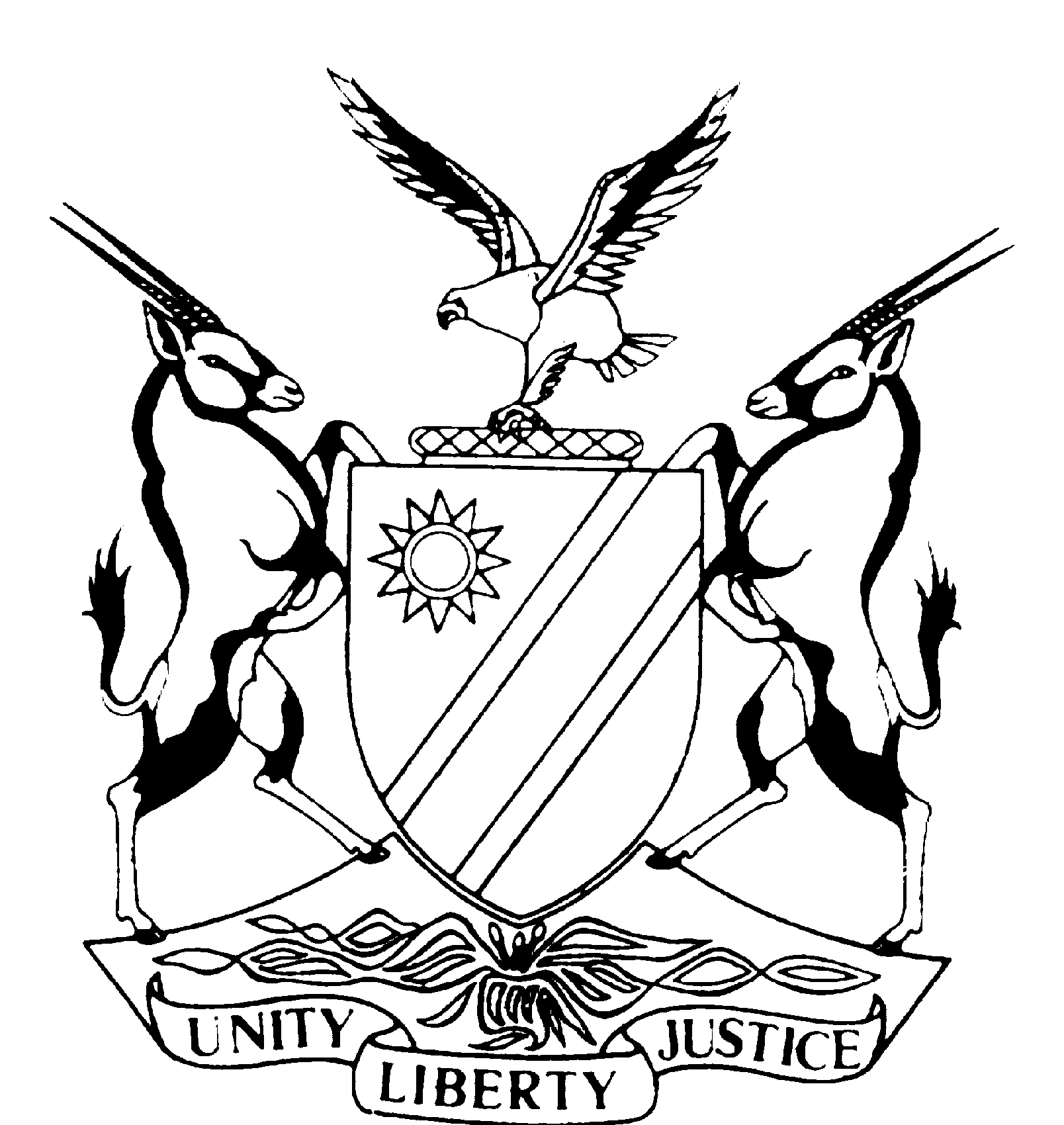
CASE NO.: A160/11
IN THE HIGH COURT OF NAMIBIA
In the matter between:
SIMON PETRUS !GANEB | APPLICANT |
and
THE MINISTER OF SAFETY AND SECURITY FIRST RESPONDENT
THE HEAD OF WINDHOEK CENTRAL PRISON SECOND RESPONDENT
CORAM: HEATHCOTE, A.J
Heard on: 02 JULY 2011
Delivered on: 06 SEPTEMBER 2011
______________________________________________________________
JUDGMENT
HEATHCOTE, A.J:
[1] In this matter prisoner !Ganeb (the Applicant), makes serious allegations;
[1.1] The applicant discloses in a letter dated 16 March 2011, which was directed to the Discipline Unit of the Namibian police that he was poisoned by an inmate on 17 March 2010, which led to his admission to the central hospital on 22 March 2010. The state medical doctor thereafter informed the applicant that due to the food poison, the applicant’s chronic pancreatitis was damaged. The applicant pleaded with the Discipline Unit to investigate the matter but has not received any response to date.
[1.2] As a result of such condition, the doctor prescribed certain types of food, which need to be taken by him while in prison. In a letter dated 29 October 2010, permission was granted to the applicant by the unit manager or correctional supervisor to purchase some of the items, such as fruits or fruit juice, cereal as well as biscuits, which request, according the applicant, the deputy head of the prison and Prison Management refused.
[1.3] The applicant further states that the Prison Authorities breached the Regulations for the Administration and Control of the Namibian Prison Service, published in Gazette No 2643/2001;
Regulation 225 states:
‘subject to regulation 257, a prisoner must be provided with food which has an adequate nutritional value according to a diet scale prescribed, which consists of a reasonable variety and is all prepared and served’
Regulation 256 states:
‘a medical officer must regularly inspect all uncooked and prepared food and must report to the commissioner on the sufficiency and quality of the food and also on the purity and adequacy of the water used for human consumption and other domestic purposes’
[1.4] The applicant then cites a current situation of an inmate, one Philipu Tsuhumba, who is currently held at the prison clinic and not released on medical grounds as prescribed by the doctor. The applicant is afraid that if the prison officials do not release him on medical grounds, he may die like other inmates, that died, according to applicant, before they could be released on medical grounds.
[1.5] The applicant also states that he, on Monday, 27 December 2010, was subjected to severe assault by the same inmates who were responsible for his poisoning, as a result of which a criminal case under CR 290/01/2011 was opened on 10 January 2011. The police statement to this affect has been attached. Six months thereafter, the applicant states, nothing has been done, to either charge the responsible inmates or to bring them before a magistrate.
[2] The application suffers form serious procedural defects. There is no basis on which the allegations can be accepted as the truth on the papers before me. But the court, as upper guardian of the Constitution and the Rule of Law, may not simply close its eyes to such allegations.
[3] Voet, Book XLVIII, title 3, Section 6 says:
“Roman and Roman-Dutch law as to humane treatment of prisoners. – Care should further be taken that imprisonment which ought merely to serve the purposes of detention while a criminal judicial proceeding is pending does not degenerate into punishment. This is what would happen if prisoners are treated by their guards in an ungentle and inhuman manner, or are cheated of food or are wasted by too confined or filthy custody in a loathsome place, and as it were destroyed by prison.”
[4] In my view, convicted prisoners are entitled to the same humane treatment.
[5] I am prepared in these circumstances to grant the following order:
[5.1] Mrs. Linda Dumba-Chilcalu together with Mrs. Toni Hancox of the Legal Assistance Centre, are appointed as referees to compile a special dossier as envisaged in section 17 of the High Court Act No 16 of 1990 (read with section 23 of the Supreme Court Act No 5 of 1990), and to file a report with the Registrar of the High Court, in which report they must make their findings known in relation to the following;
[5.1.1] Whether the prison authorities comply and have complied (since June this year (2011)) with Regulations 255, 256 and 257 published in Government Gazette number 2643 of 8 November 2001.
[5.1.2] Whether Mr. !Ganeb’s allegation that he had to be released from prison during the period 10 January 2006 to February 2006 but was not, is correct, and if so, what caused his continued detention during such period.
[5.1.3] Whether the prison authorities are refusing to release prisoner Philipus Tsuhumba on medical grounds as prescribed by a medical practitioner, and if so, on which basis such refusal is taking place.
[5.1.4] Whether Mr. !Ganeb opened criminal case CR 290/01/2011, and if so, whether the prison authorities and the Namibian police are obstructing the investigation of the matter.
[5.1.5] Whether the prison authorities are refusing to comply with the Internal Memo dated 29 October 2010, in terms of which Mr. !Ganeb was granted permission to purchase fruits or fruit juice and biscuits or cereals, and if so, on what basis such refusal is taking place.
[5.1.6] Whether it is necessary for the prison authorities to make
non-smoking zones available to prisoners.
[5.2] For purposes of compiling the special dossier Mrs. Linda Dumba-Chilcalu together with Mrs. Toni Hancox of the Legal Assistance Centre are granted leave to;
[5.2.1] enter the prison and prison areas of the Windhoek prison, have access to the relevant documents, make copies thereof, and to keep such copies in their possession;
[5.2.2] interview any prisoner, prison official, medical practitioner, of which interviews record shall be kept (which interviews and records shall be kept confidential, until the dossier is released);
[5.2.3] have access and make copies of all documents in the court file in this case (A 160/11);
[5.2.4] be permitted to sample any foodstuffs for purposes of compiling the dossier.
[5.2.5] approach a judge in chambers, to amplify the powers granted to them in terms of this order, if necessary.
[5.2.6] make recommendations in their report as to which steps, if any, should be taken and which relief the court should grant.
[6] After the dossier has been filed, the Respondents shall be given an opportunity to respondent to the dossier. The matter should then be enrolled before a judge to consider the relief sought by applicant or any other relief as recommended by the referees.
[6] The report should be completed by 20 November 2011.

_______________
HEATHCOTE, A.J